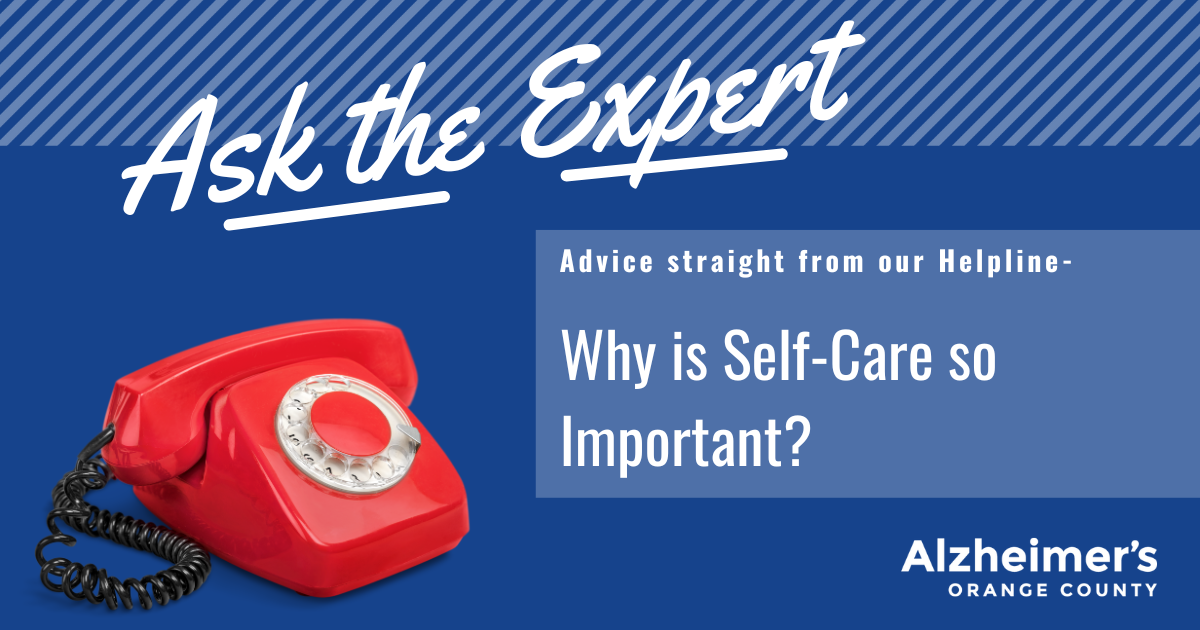Self-care is important for a healthy, manageable life. This is especially true for people caring for a person with dementia. According to a 2022 study published in the World Journal of Psychiatry, 1 in 3 caregivers aka care partners, experience depression. In general, caregivers tend to neglect their own health appointments, overlook their own well-being, and feel isolated in their journey as a caregiver.
Self-care is not only good for you, but also for the person you are caring for. Caregivers must attend to their physical, emotional, and spiritual health in order to remain healthy while juggling the demands of caring for someone else. When you are well-rested, calm and happy, you can provide better care and support for your loved one. Care partners may also be raising children, working, and/or maintaining a household. If the stress of caregiving is left unchecked, it can take a toll on your health, relationships, and state of mind–eventually leading to burnout.
Some self-care tips for caregivers include:
- Finding a support group of other caregivers who can relate to your situation and offer advice, encouragement and friendship.
- Seeking professional help if you experience signs of depression, anxiety or burnout, such as persistent sadness, hopelessness, irritability, fatigue or loss of interest in activities you used to enjoy.
- Practicing relaxation techniques such as deep breathing, meditation, yoga or massage to reduce stress and tension in your body and mind.
- Eating a balanced diet that nourishes your body and brain with essential nutrients and vitamins. Avoid skipping meals or relying on junk food or caffeine for energy.
- Getting enough sleep every night to restore your energy and mental clarity. Aim for at least seven hours of quality sleep and avoid distractions such as TV, phone or computer before bed.
- Exercising regularly to boost your mood, improve your physical health and release endorphins that make you feel good. Choose an activity that you enjoy and that suits your fitness level and schedule.
- Making time for hobbies and interests that bring you joy and fulfillment. Whether it’s reading, gardening, painting or playing music, find something that sparks your creativity and passion.
- Setting boundaries and limits with your loved one and others who may demand too much of your time or energy. Learn to say no when you need to and ask for help when you need it.
Try this: Take a moment to yourself to watch this guided breathing exercise to help you relax
By taking care of yourself, you are also modeling healthy behaviors and attitudes for your loved one, which can positively influence your loved one’s mood and well-being. You can also be more patient, compassionate and understanding of their needs and challenges.
If you’re struggling to make self-care a priority, remember the oxygen mask analogy. If the cabin pressure drops in an airplane and oxygen masks become necessary, passengers are instructed to put on a mask on themselves first before they assist others. The same applies to self-care. Care for yourself so you can care for others. If you find yourself becoming overwhelmed or stuck, please call our Helpline at 844-373-4400. Our dementia care experts can help you figure out a plan to put yourself first.
Related Information
Six Strategies for Developing Resiliency
Discover six effective ways to empower yourself as a caregiver. Read here.
How To Share Caregiving Responsibilities With Family Members
View and download a caregiver tip sheet on how to share caregiving responsibilities with family members. Read here.
Caring for Yourself
View and download a caregiver tip sheet on how to care for yourself when caring for a loved one living with memory loss. Read here.


